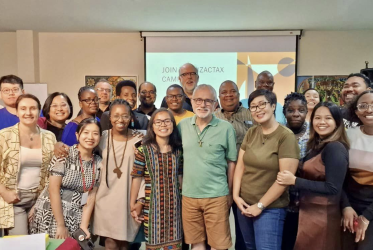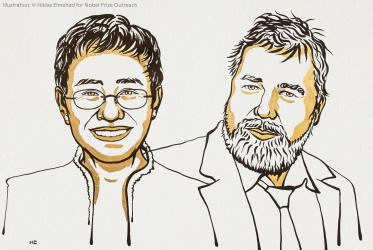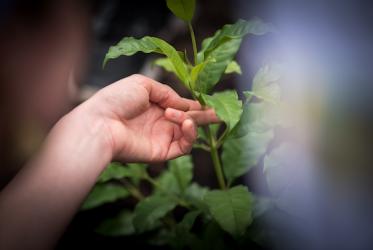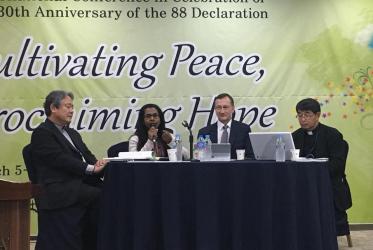Displaying 1 - 20 of 45
08 September 2023
WCC congratulates 2021 Nobel Peace Prize laureates
14 October 2021
Church of South India eco-ministry featured on UNESCO website
17 February 2020
Worldwide prayer campaign begins to end 70-year Korean War
06 February 2020
WCC condemns attack at Hanukkah celebration in New York City
29 December 2019
WCC delegation meets with Korean prime minister
19 November 2019
The cry of the Papuans in Indonesia
14 November 2019
A passionate Korean feminist and ecumenist
21 August 2019
Church in Bali empowers youth to break cycle of poverty
18 March 2019
Turning mercy and compassion into action
04 March 2019
Paving the way for ecumenical studies, learning English in Bossey
24 September 2018
Unifying faiths in peace and harmony through dialogue
10 April 2018
WCC welcomes “powerful sign of hope” on Korean Peninsula
08 March 2018











